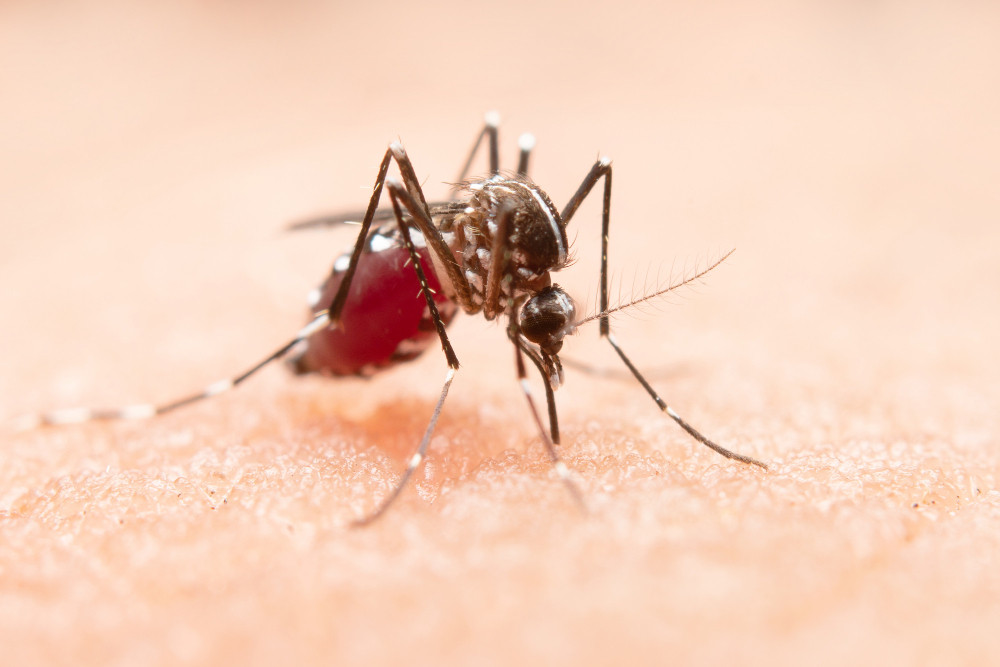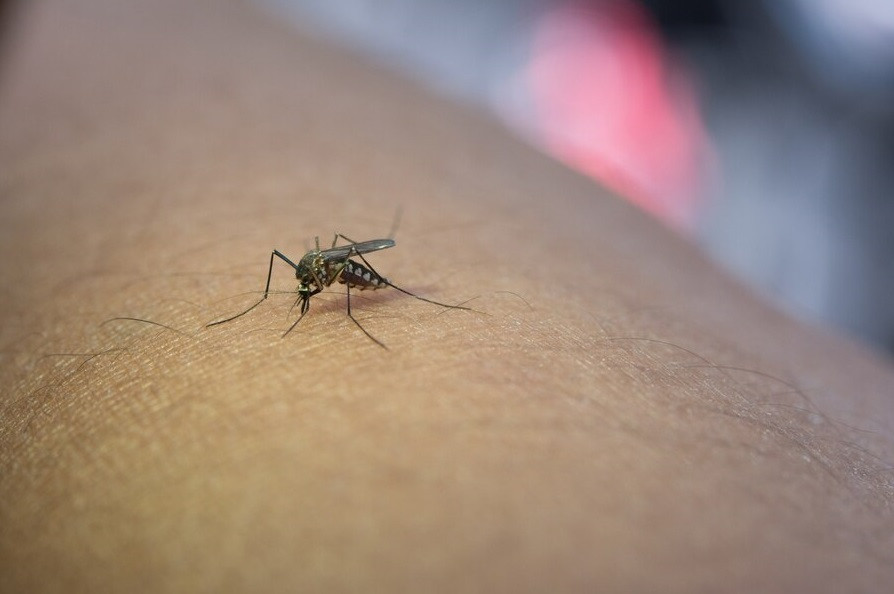Japanese Encephalitis adalah peradangan pada otak yang jarang namun berpotensi serius. Japanese Encephalitis disebabkan oleh virus Japanese Encephalitis (JEV), yang ditularkan oleh gigitan nyamuk Culex yang terinfeksi.
Kasusnya telah menyebar luas di wilayah Asia. Menurut CDC, beberapa kasus JE telah dilaporkan di Jawa, Sumatra, Kalimantan, Bali, Nusa Tenggara dan Papua. Di beberapa negara, infeksi JE telah berhasil dikendalikan melalui program vaksinasi. Seperti apa gejala penyakit ini?
Gejala Penyakit Japanese Encephalitis
Karena penularannya melalui gigitan nyamuk, maka siapa saja berisiko terkena penyakit Japanese Encephalitis. Masa inkubasi berlangsung sekitar 5-15 hari. Gejala yang dirasakan cukup bervariasi, mulai dari yang ringan hingga parah.
Gejala ringan, di antaranya:
- Demam
- Sakit kepala
- Muntah
Gejala yang lebih berat, di antaranya:
- Sakit kepala parah
- Kekakuan leher dan punggung
- Sensitif terhadap cahaya
- Kebingungan
- Kejang (terutama pada anak-anak)
- Kelumpuhan
- Koma
Sekitar 20-30% pasien yang mengembangkan infeksi otak akibat JEV meninggal, sedangkan 30-50% yang berhasil bertahan hidup masih mengalami gejala neurologis, kognitif dan psikiatris.
Karena JE bisa menyebabkan kematian maupun cacat permanen, maka segera cari pertolongan medis saat menyadari gejalanya, terutama bila di daerah Anda ditemukan kasus JE.
Baca Juga: Benarkah Nyamuk Tertarik Golongan Darah Tertentu?
Cara Mencegah Japanese Encephalitis
Potensi penularan penyakit Japanese Encephalitis adalah melalui gigitan nyamuk yang terinfeksi. Pencegahan paling efektif dari penyakit ini adalah melindungi dari gigitan nyamuk.
Berikut adalah beberapa hal yang bisa dilakukan:
- Mengenakan pakaian pelindung berlengan panjang, longgar, kaos kaki, dan sepatu tertutup
- Menggunakan obat nyamuk yang mengandung bahan aktif seperti picardin dan DEET pada area kulit yang terbuka
- Membatasi aktivitas di luar ruangan terutama saat nyamuk sedang aktif
- Membuang genangan air di sekitar rumah
- Menggunakan kelambu tidur untuk mencegah gigitan nyamuk di malam hari
- Memastikan jendela tertutup rapat dan memperbaiki celah yang dapat diakses oleh nyamuk
- Mendapatkan vaksin JE
Baca Juga: Siapa Saja yang Memerlukan Vaksin Japanese Encephalitis?
Mengapa Perlu Mendapatkan Vaksin Japanese Encephalitis
Vaksin Japanese Encephalitis adalah jenis vaksin yang terbuat dari virus JE yang dilemahkan atau tidak aktif. Vaksin ini boleh digunakan untuk anak-anak berusia 2 bulan hingga 17 tahun dan pada orang dewasa 18-65 tahun.
Melansir Ikatan Dokter Anak Indonesia (IDAI), vaksin JE dapat diberikan pada anak usia 9 bulan sampai 15 tahun. Untuk perlindungan jangka panjang dapat diberikan booster 1-2 tahun setelah dosis pertama.
Vaksin JE dibutuhkan oleh anak-anak dan mereka yang bepergian ke daerah-daerah berisiko tinggi terkena JE di Asia. Vaksin ini dianggap aman meskipun ada efek samping ringan seperti nyeri di bekas suntikan, kemerahan, pembengkakan, demam ringan, sakit kepala dan nyeri otot.
Segera periksakan diri ke dokter apabila Anda mengalami gejala infeksi JE, khususnya apabila tinggal di daerah di mana kasus JE sedang tinggi. Anda juga bisa memanfaatkan layanan konsultasi kesehatan dengan mengunduh aplikasi Ai Care melalui App Store atau Play Store.
Mau tahu informasi seputar penyakit lainnya? Cek di sini, ya!
- dr. Monica Salim
CDC (2022). Japanese Encephalitis Virus. Available from: https://www.cdc.gov/japaneseencephalitis/index.html
Better Health Channel. Japanese encephalitis. Available from: https://www.betterhealth.vic.gov.au/japanese-encephalitis
Sy Kraft (2018). What's there to know about Japanese encephalitis?. Available from: https://www.medicalnewstoday.com/articles/181418#transmission
Healthy Children (2021). Japanese Encephalitis Vaccine: What You Need to Know (VIS). Available from: https://www.healthychildren.org/English/safety-prevention/immunizations/Pages/Japanese-Encephalitis-Vaccine-What-You-Need-to-Know.aspx
Sophie J. Balk, MD, FAAP (2023). Choosing an Insect Repellent for Your Child. Available from: https://www.healthychildren.org/English/safety-prevention/at-play/Pages/Insect-Repellents.aspx
IDAI (2018). Mengenal Japanese Encephalitis. Available from: https://www.idai.or.id/artikel/klinik/imunisasi/japanese-encephalitis











